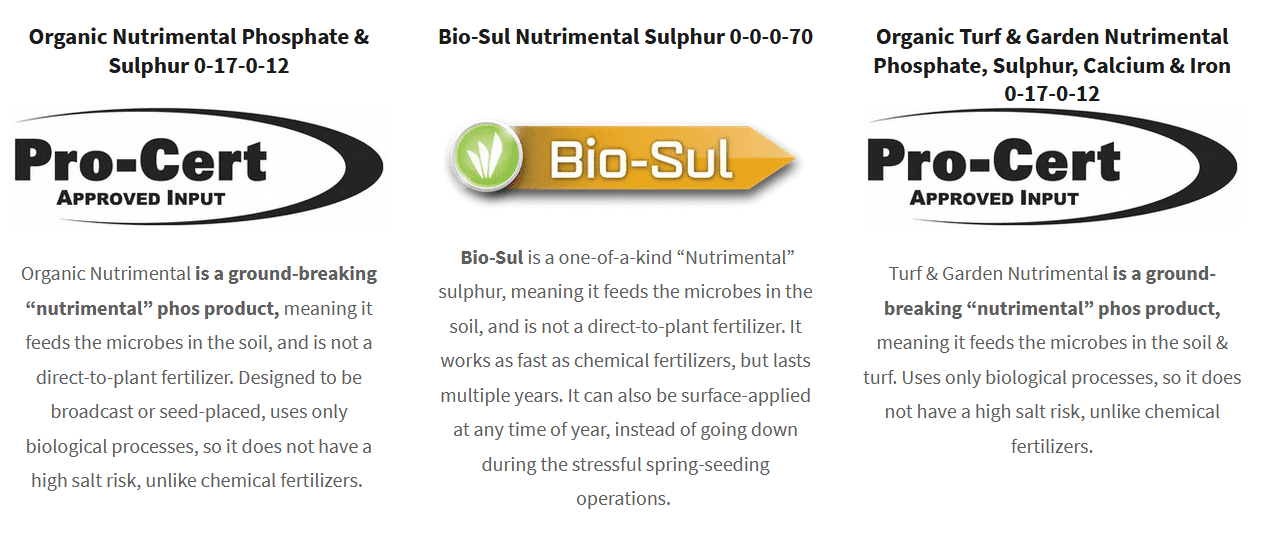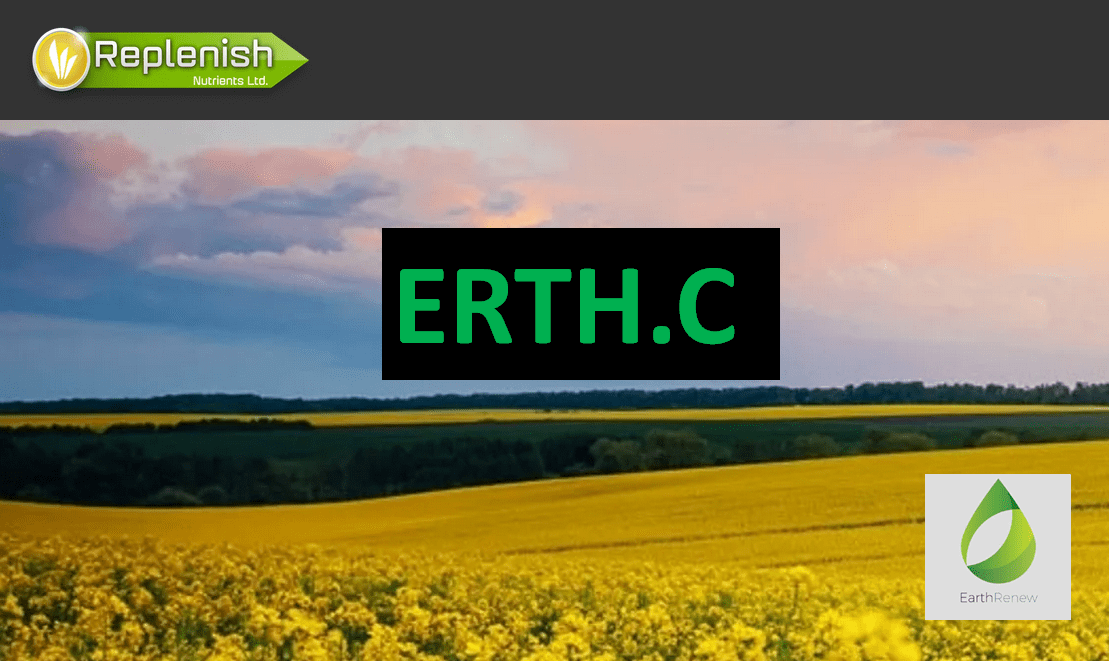On January 13, 2021 EarthRenew (ERTH.C) announced that it has signed a non-binding letter of intent (L.O.I) to acquire 38% of Replenish Nutrients – a privately held regenerative fertilizer and nutrient company located in Okotoks, Alberta.
ERTH transforms livestock waste into a high-performance organic fertilizer.
The proposed acquisition furthers ERTH’s objective to offer a suite of soil health solution growth assets.
Okotoks (pop. 29,000) is situated on the Sheep River, 18 kilometers south of Calgary.
Partnering with Replenish Nutrients will bring in tech-savvy management and a mature customer list: two things of value to ERTH as it transitions into as a mid-market fertilizer and soil solution provider.
“We are extremely excited to announce the signing of the LOI and the proposed acquisition of Replenish Nutrients,” started Earthrenew’s CEO, Keith Driver, “If consummated, we expect that the proposed acquisition will allow us to add top-line revenue and accelerate phase 2 of our construction plans.”
In this December 3, 2020 video, Jody Vance talks to EarthRenew CEO and Director, Keith Driver about the business objectives of the company.
Replenish Nutrients’ management has 35 years experience in the regenerative fertilizer and nutrient industry, including researching, innovating, manufacturing and selling all natural, biosafe fertilizers and plant nutrients.
“The Replenish Nutrients team is intended to support all aspects of the marketing, distribution and sales of the Earthrenew products into the regenerative agriculture space,” states ERTH, “Replenish Nutrients currently has an established product line that it sells across Western Canada and the United States (North Dakota and Montana), generating strong revenues.
Regenerative agriculture promotes farming principles that seek to rehabilitate and enhance the entire ecosystem of the farm with an emphasis on soil health, water management and fertilizer use” according to the Rodale Institute.
Key Regenerative Agriculture Principles:
Conservation tillage: Plowing and tillage erode soil and release large amounts of carbon dioxide into the atmosphere. This can also create a hostile environment for important soil microbes. By adopting low- or no-till practices, farmers minimize physical disturbance of the soil.
Diversity: Different plants release different carbohydrates (sugars) through their roots, and various microbes feed on these carbs and return all sorts of different nutrients back to the plant and the soil. Plant diversity helps create nutrient-dense soils that lead to more productive yields.
Rotation and cover crops: By rotating crops and deploying cover crops strategically, farms and gardens can infuse soils with more and more (and more diverse) soil organic matter, often while avoiding disease and pest problems naturally.
Mess with it less: Restrain and caution with chemical or biological additives which can disrupt the natural relationship between microorganisms and plant roots.
Here is a Replenish Nutrients’ case study summary:
Challenge: Colin Bouchard grows wheat, barley, peas, lentils, flax and fall rye. He had been looking for new sources of organic phosphorus. He had tried a raw soft rock product from Soda Springs Iowa that did not have quick enough action.
Solution: Bouchard purchased 20 tonnes of Replenish, giving one field 150 lb/acre, and another 300 lb/acre. It was applied to pea crops during a drought year.
Results: Bouchard reported that his yield was 33 – 36 bushels per acres of peas, which was was outstanding given the low rainfall. The Replenish product was about $20/tonne cheaper than other products he had tried.

There is some good synergy to this L.O.I. One of the vendors was a former consultant to the development of ERTH’s original Strathmore facility. He would bring with him an extensive history with the design and operations of the technology.
“Replenish Nutrients has a broad customer list with an appetite for soil solutions,” stated Driver, “Sharing that list is anticipated to allow us to quickly open new sales channels following closing.”
Driver believes that “the combined efforts of the proposed new management team will help Earthrenew accelerate the company’s growth following closing.”
In November 2020, ERTH announced that it sold 25 tonnes of its organic fertilizer product to NorthWind Land Resources, a land reclamation company.
On December 1, 2020 EarthRenew announced that it has renewed the lease of 2.92 acres of the Cattleland Feedyards site located in Wheatland County, Alberta, East of Calgary, for a 9-year term, with eight 5-year extension options.
“The recommissioning of the EarthRenew facility will comprise the majority of our manure management solution,” stated Cattleland Feedyards’ CEO, Keith Gregory, “By taking our waste, EarthRenew’s operation will help us save close to half a million dollars a year in hauling and spreading costs.”
On December 2, 2020 EarthRenew (ERTH.C) announced that it has started a long-term soil health demonstration trial with an agronomist at a farming operation in west central Saskatchewan in the “dark brown soil zone”.
ERTH’s equipment is modular, so ERTH has the potential to scale into international markets.

“This proposed investment by Earthrenew is anticipated to provide us access to the capital required to accelerate the expansion of our existing facility and regenerative nutrient product line,” stated Replenish Nutrients’ managing partner, Gerard Philpott, ‘Our technology utilizes organic waste streams, combined with natural minerals, to enhance soil health, increase organic matter and biological activity with minimal impact on soil salinity.”
The demand-drivers for ERTH’s products have a tail-wind: due to the encroachment of suburbs, arable land is being lost at the rate of over 38,000 square miles per year.
Land devoted to organic farming however is increasing. “The U.S. organic sector posted a banner year in 2019, with organic sales in the food and non-food markets totalling a record $55.1 billion, up 5% from the previous year”.
- Lukas Kane
Full Disclosure: EarthRenew is an Equity Guru marketing client.


Leave a Reply